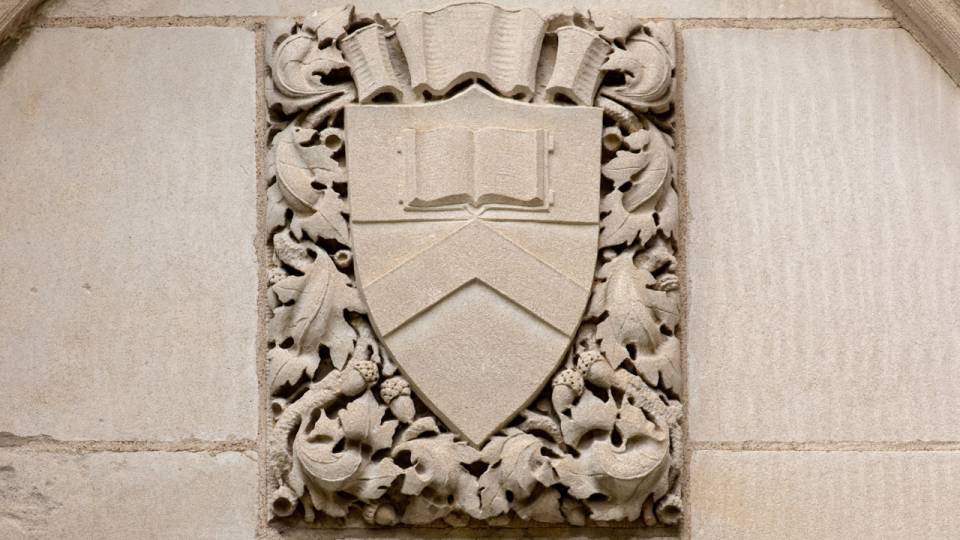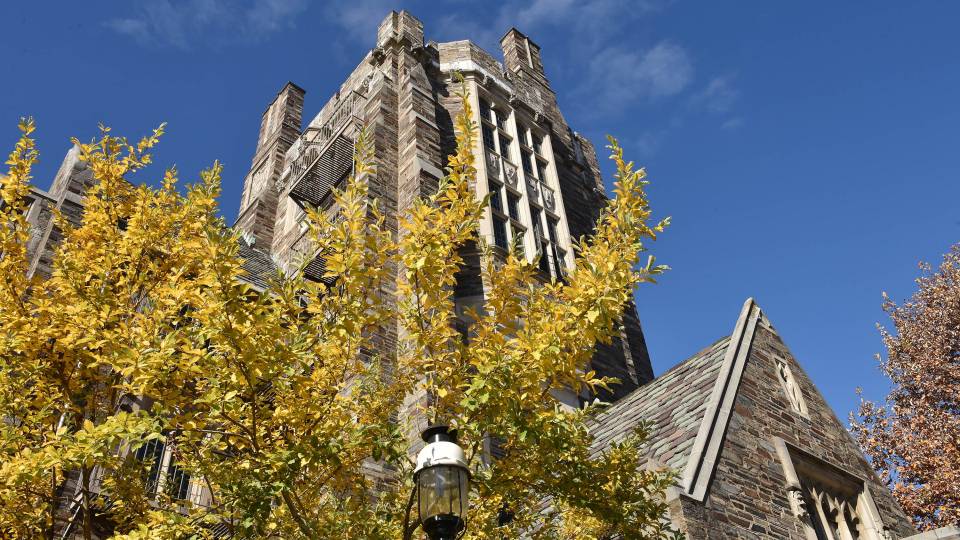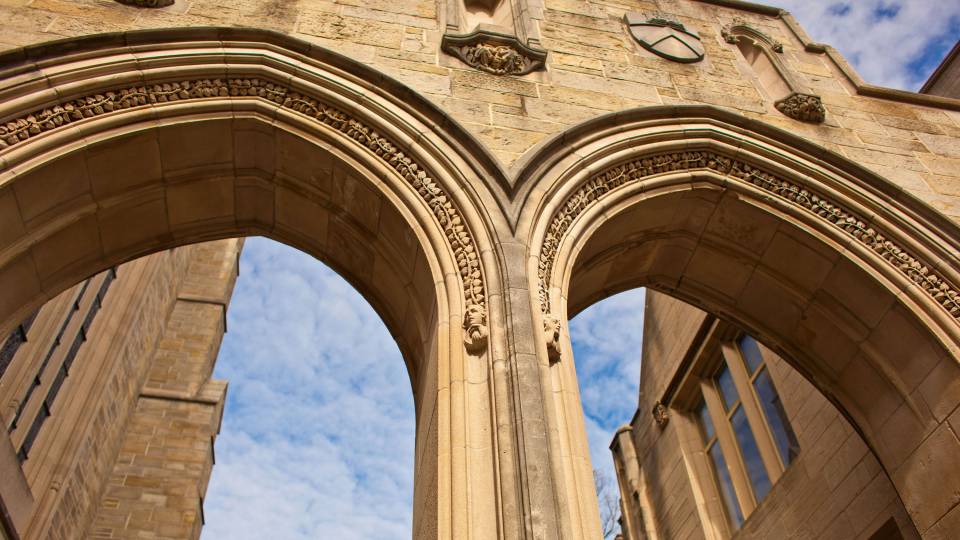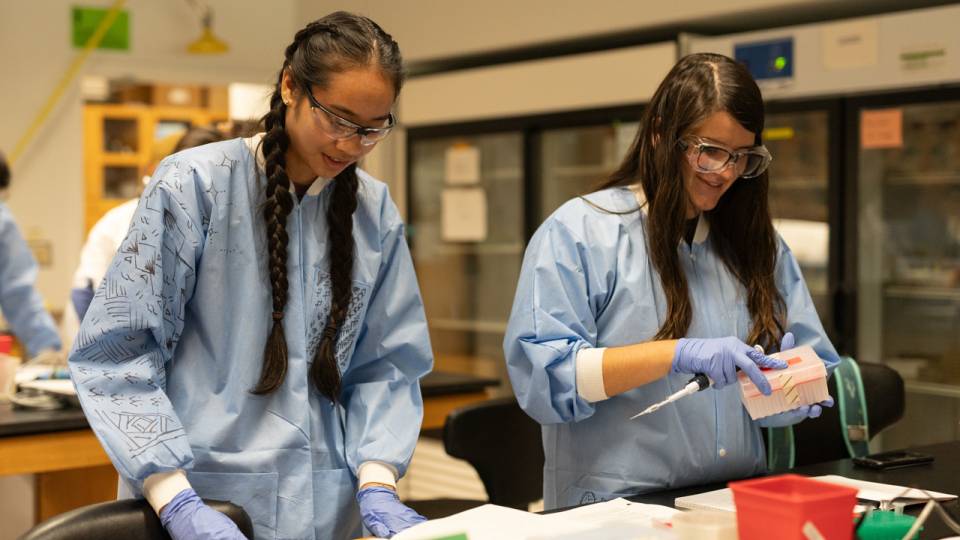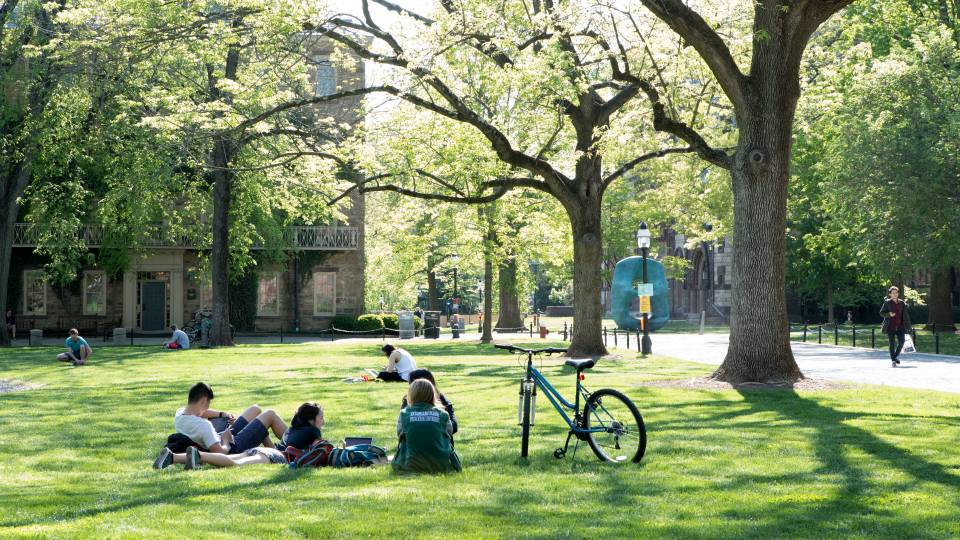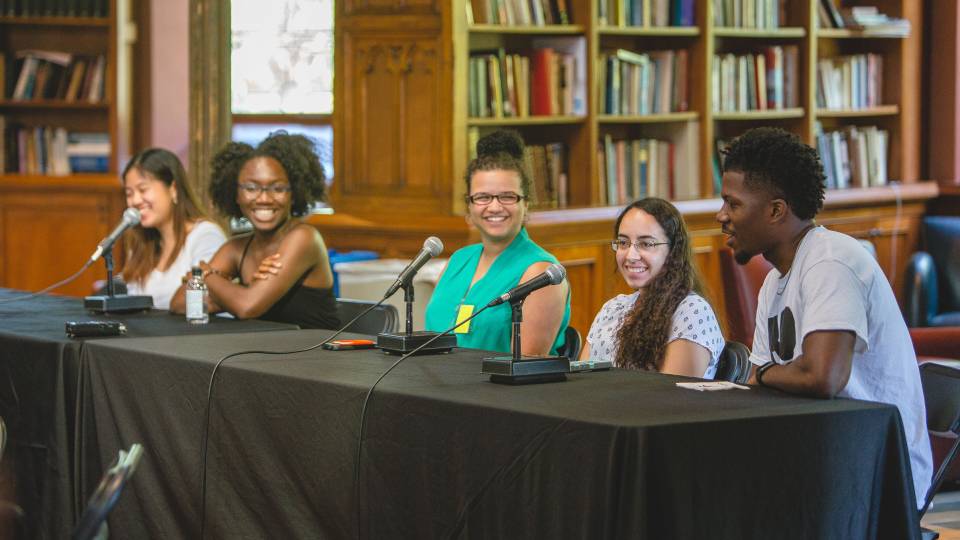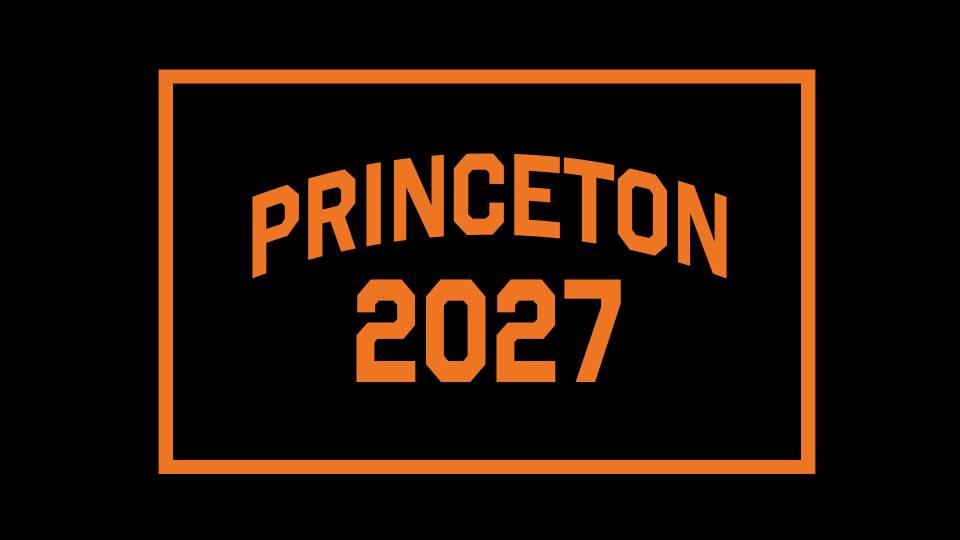Princeton will significantly expand its transfer admission program over the next few years, gradually increasing from the 40 transfer students currently enrolled to approximately 100. The University reinstated its transfer program in 2018 to support the enrollment of more undergraduates from first-generation, lower-income, military or community college backgrounds.
“[Transfer students] have brought outstanding talent, and new and valuable perspectives and experiences, to Princeton,” President Christopher L. Eisgruber said in his recent State of the University letter.
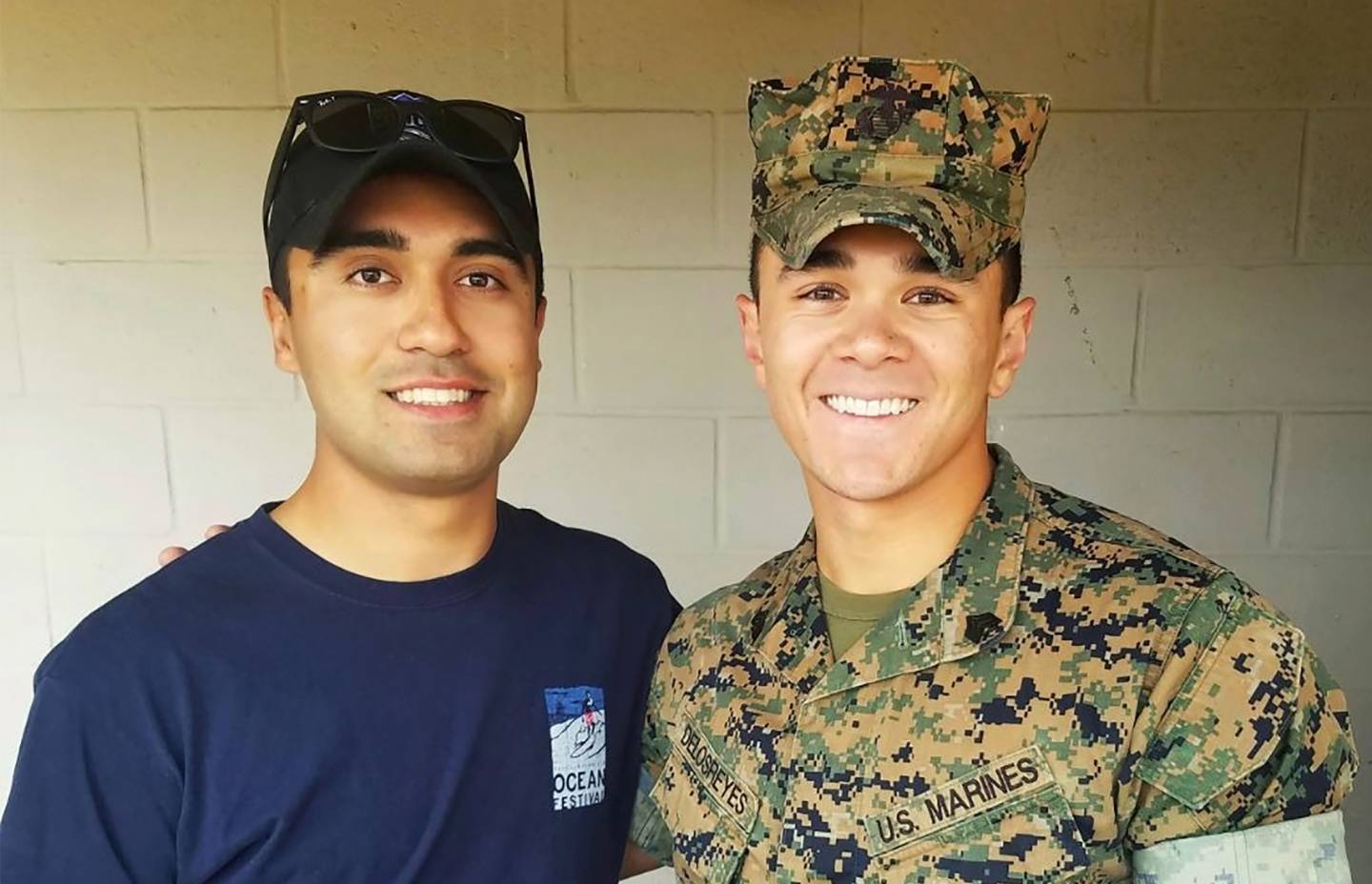
Class of 2024 member Xander de los Reyes (right) is pictured from his time in the Marine Corps with fellow Marine Fessal Aziz. De los Reyes transferred to Princeton from Saddleback College in southern California after his military service. Many of the transfer students at Princeton are also veterans.
Between 10 and 15 transfer students have enrolled at Princeton each year since 2018. Starting this fall, Princeton will enroll between 25 and 35 transfers each year. The increase is part of an overall undergraduate expansion, which will allow the University to admit more talented students from all backgrounds.
Transfer students have until March 1 to submit applications for the 2022-23 academic year.
“The exciting and distinctive character of Princeton’s transfer program is that it’s an access and inclusion initiative, designed to bring otherwise underrepresented student constituencies to campus,” said Keith Shaw, the inaugural director of Transfer, Veteran and Non-Traditional Student Programs. “Scaling the program means inviting more student veterans, more community college transfers, and more adult learners and students with families, thereby enriching Princeton with a wider range of perspectives and life experiences.”
Shaw recently received the National Transfer Champion Rising Star Award from the National Institute for the Study of Transfer Students. He was recognized for “working tirelessly to develop new initiatives and advocate for policies” that support transfer students at Princeton.
“A larger transfer program helps make Princeton better reflect the complex society in which it is embedded, and its students will in turn enhance the campus experience for everyone,” Shaw said.
Class of 2024 member Beianka Tomlinson, who transferred from Union County College in New Jersey, agreed.
“Transfer students are an example that excellence in a university does not take on one single form and can be found in people who are not considered traditional college students; it has no boundaries!” she said. “Through the transfer program, I’ve met people who are so unique and who all have different stories: Some are veterans, some are high school dropouts, some are Olympians and some are engaged or married with kids.”
Tomlinson also has made friends through her many activities on campus. She is on the pre-med track with plans to concentrate in chemistry and earn certificates in African American studies and global health and health policy.
“The Princeton community is a community of communities,” she said. “There isn’t one way to enjoy Princeton; you can find your niche in one group, or across multiple groups. For example, I’m a Black woman from Jamaica who is also a transfer student. I find a community among Black women, among Caribbean people and among other transfers. I also find community among people who have similar academic interests and hobbies.”
Alex Bustin, senior associate dean and director of transfer and military/veteran admission, said students take many routes to Princeton. The Office of Admission partners with nonprofit organizations that serve community college and veteran students to recruit transfer students, including the Transfer Scholars Network sponsored by the American Talent Initiative, Phi Theta Kappa, Service to School, the Warrior-Scholar Project and Leadership Scholar Program.
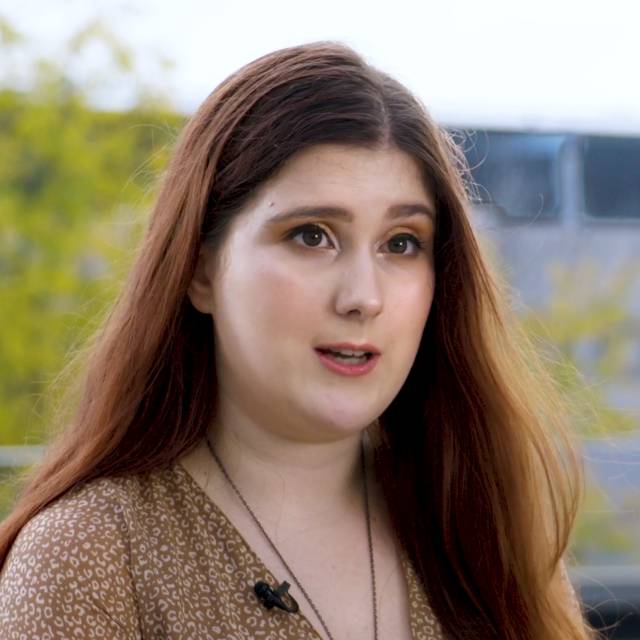
Ally Wonski, who transferred from Middlesex County Community College in Edison, New Jersey, said Princeton allowed her not to worry about the cost of tuition, housing and food, and to explore academically and try different things.
“Since reinstating the transfer program, we’ve seen a wide range of applicants. Some who have always done well academically throughout high school and college and others who didn’t hit their stride until much later – maybe even after multiple attempts at college,” he said. “We recognize that different students reach their academic prime at different times for any number of reasons. You absolutely can be a competitive applicant for our transfer program if you have a strong record over the most recent semesters. We’re admitting our students and community members for who they are now and not necessarily who they used to be.”
Class of 2023 member Kaller Roemer, president of the Princeton Student Veterans, talked about how he came to campus after serving in Iraq with the U.S. Army and transferring from Menlo College in California.
“My path and story is a little atypical of the average Princeton student. And I share this in common with a lot of military or veterans on campus and transfer students in general,” he said on Admission's Meet Princeton! podcast. “I've had this sentiment with a few other veterans where times get tough, it's stressful. Obviously Princeton's a very rigorous university. And I can always remind myself that this isn't Iraq, and I've been in a lot more stressful situations. And I think, at the end of the day, that is an incredible asset that I have.”
Once enrolled at Princeton, transfer students are supported through a number of programs and services under the Emma Bloomberg Center for Access and Opportunity. Examples include:
- Princeton’s generous no-loan financial aid program that allows students to graduate debt-free. Like all undergraduates, transfer students receive financial aid that meets 100% of their demonstrated financial need.
- Transfers are invited to participate in a customized summer bridge program where they can take one or two for-credit courses while receiving academic advising and mentorship prior to their first year.
- Transfers attend a week-long pre-orientation program that helps them and their families get settled at Princeton.
- All first-year transfers are part of the new Transfer Mentor Program that pairs them with a peer mentor to help them successfully navigate their first semester and beyond.
- Transfer students who come to Princeton with families can live in apartment-style accommodations (rather than undergraduate dormitories) and are eligible for a reduced-price limited dining plan.
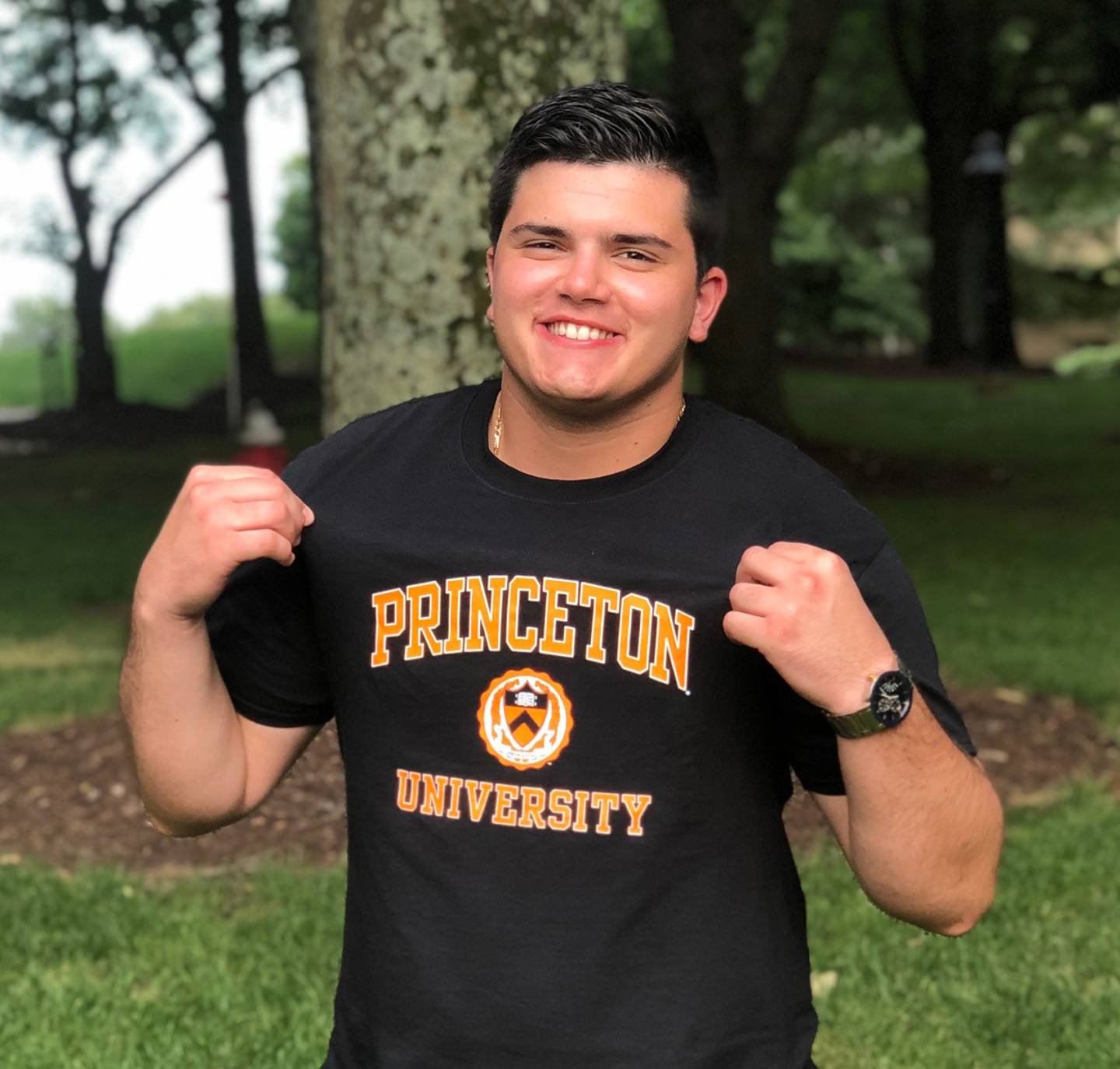
Class of 2022 member Alejandro Garcia is president and founder of the Princeton Transfer Association. “Princeton’s transfer program offers a unique opportunity for students to not only make a transition from community college to a four-year university, but it also helps students thrive in the process,” he said.
“In a way, the transition [to Princeton] is almost seamless,” Class of 2022 member Alejandro Garcia wrote in a recent blog for the Office of Admission. “The program equips you with the necessary resources to easily integrate into Princeton’s broader student body, while adapting to the academic rigor.”
Garcia, a politics concentrator from Miami Dade Honors College, is president and founder of the Princeton Transfer Association.
“Princeton’s transfer program offers a unique opportunity for students to not only make a transition from community college to a four-year university, but it also helps students thrive in the process,” he said. “The transfer program has created an environment in which students from any academic discipline and background can expect to overcome the academic obstacles within the classrooms of a world-class institution, while also benefiting from unmatched professional development opportunities.”
Class of 2025 member Kristy González, who also studied at Miami Dade Honors College, has found benefits in her experience as a Marine Reservist and transfer student.
“I was afraid that coming from a non-traditional educational background would make me feel like an outsider at Princeton, yet it has just given me extra tools to try new things, whether classes, extracurriculars or social groups,” she said. “I feel like we bring a new perspective to the school and as students, showing how there are many different paths that can take us to the same goal.”
